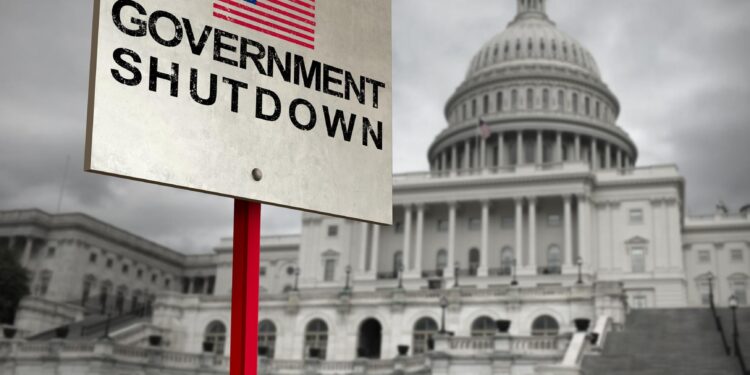A potential government shutdown poses significant risks to the U.S. economy, disrupting federal services and shaking market confidence. As lawmakers face mounting pressure to reach a budget agreement, experts warn of far-reaching consequences that could slow economic growth, affect millions of workers, and unsettle financial markets. This article examines how a government shutdown would impact various sectors of the economy, drawing insights from economists, government officials, and industry leaders.
Economic Ripple Effects on Consumer Spending and Business Confidence
Consumer behavior typically shifts rapidly in response to the uncertainty that accompanies a government shutdown. Households often tighten their budgets, delaying major purchases and cutting back on discretionary spending. This pullback can create a domino effect across various sectors, especially in retail, travel, and dining, industries heavily reliant on steady consumer demand. Job insecurity and dipping stock market confidence further exacerbate this cautious spending, leaving businesses bracing for lower revenues and inventory backlogs.
- Reduced consumer spending leads to slower economic growth.
- Decline in business investments as companies hesitate to expand amid uncertainty.
- Lower consumer confidence impacts small to medium enterprises profoundly.
| Indicator | Pre-Shutdown Level | Projected Drop During Shutdown |
|---|---|---|
| Consumer Confidence Index | 85 | 68 |
| Retail Sales Growth | +3.2% | +0.5% |
| Small Business Optimism | 92 | 80 |
Business confidence also takes a substantial hit as a shutdown stalls government contracts and delays regulatory approvals. Companies dependent on federal operations for their supply chains or procurement face interruptions, prompting leadership to adopt defensive strategies like freezing hiring or postponing new ventures. This environment fosters hesitation, which can ripple through financial markets, increasing volatility and reducing investment inflows.
- Contract delays disrupt planned projects and cash flow.
- Hiring freezes suppress job market dynamism.
- Market volatility dampens investor enthusiasm.
Federal Workforce Disruptions Threaten Public Services and Project Timelines
Federal employees are bracing for significant disruptions as critical public services face delays and uncertainty. Agencies responsible for essential functions like food safety inspections, airport security, and veteran benefits may experience staffing shortages or operational slowdowns due to furloughs and reduced funding. This turbulence risks eroding public trust and compromising the delivery of timely services that millions depend on daily.
Project timelines tied to government contracts and infrastructure improvements are also under threat, shifting from planned completion dates to indefinite postponements. Key sectors including transportation, environmental protection, and research initiatives see halted progress, which could stall innovation and economic growth. The following table outlines some of the key areas affected and expected consequences:
| Sector | Impact | Potential Consequence |
|---|---|---|
| Transportation | Delayed Infrastructure Repairs | Increased traffic congestion and safety risks |
| Environmental Agencies | Suspended Inspections | Potential rise in environmental hazards |
| Scientific Research | Funding Pauses | Slowed technological advancements |
| Veteran Services | Reduced Staff Availability | Backlogs in benefits processing |
Maintaining critical operations during a shutdown remains a challenge, with ripple effects likely to extend beyond government walls into the private sector and communities nationwide.
Policy Recommendations to Mitigate Economic Fallout and Restore Stability
To cushion the economic blow of a government shutdown and pave the way for recovery, policymakers must prioritize urgent and strategic interventions. Immediate reinvestment in critical public services can stabilize market confidence and maintain essential functions. Allocating emergency funds to sectors such as healthcare, social security, and federal employee wages will not only prevent cascading business disruptions but also sustain consumer spending. Additionally, flexible fiscal policies including temporary tax relief and targeted stimulus packages can boost private sector resilience, helping businesses and households weather the uncertainty.
Long-term stabilization hinges on comprehensive reforms aimed at preventing future stalemates. Key recommendations include:
- Automatic Continuing Resolutions: Implement mechanisms to maintain government operations at current funding levels until new budgets are approved.
- Enhanced Transparency: Foster bipartisan communication by publicly tracking budget negotiations and exposing potential deadlocks early.
- Fiscal Responsibility Frameworks: Introduce binding rules limiting deficit spending while safeguarding essential services.
- Economic Impact Monitoring: Establish a real-time dashboard for evaluating shutdown repercussions to inform swift responses.
| Policy Measure | Immediate Effect | Long-Term Benefit |
|---|---|---|
| Emergency Funding | Stabilizes essential services | Prevents prolonged economic damage |
| Automatic Continuing Resolution | Stops shutdowns | Ensures budget continuity |
| Fiscal Responsibility Rules | Limits deficit growth | Maintains economic credibility |
| Transparency Enhancements | Builds trust among stakeholders | Reduces negotiation gridlock |
To Conclude
As the possibility of a government shutdown looms, experts warn that the economic repercussions could be significant and far-reaching. From delayed federal payments and furloughed workers to disrupted services and shaken market confidence, the effects would ripple through various sectors, underscoring the urgent need for lawmakers to reach an agreement. While the full impact remains uncertain, the consensus is clear: a shutdown would pose serious challenges to the nation’s economic stability. CBS News will continue to monitor developments and provide updates as the situation evolves.










